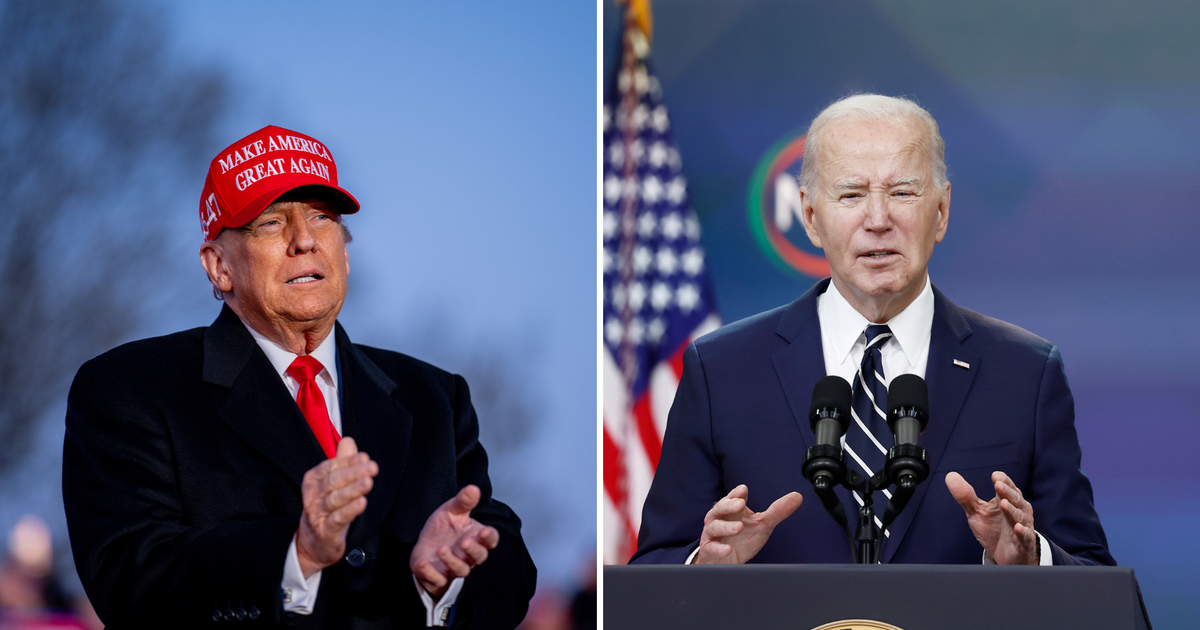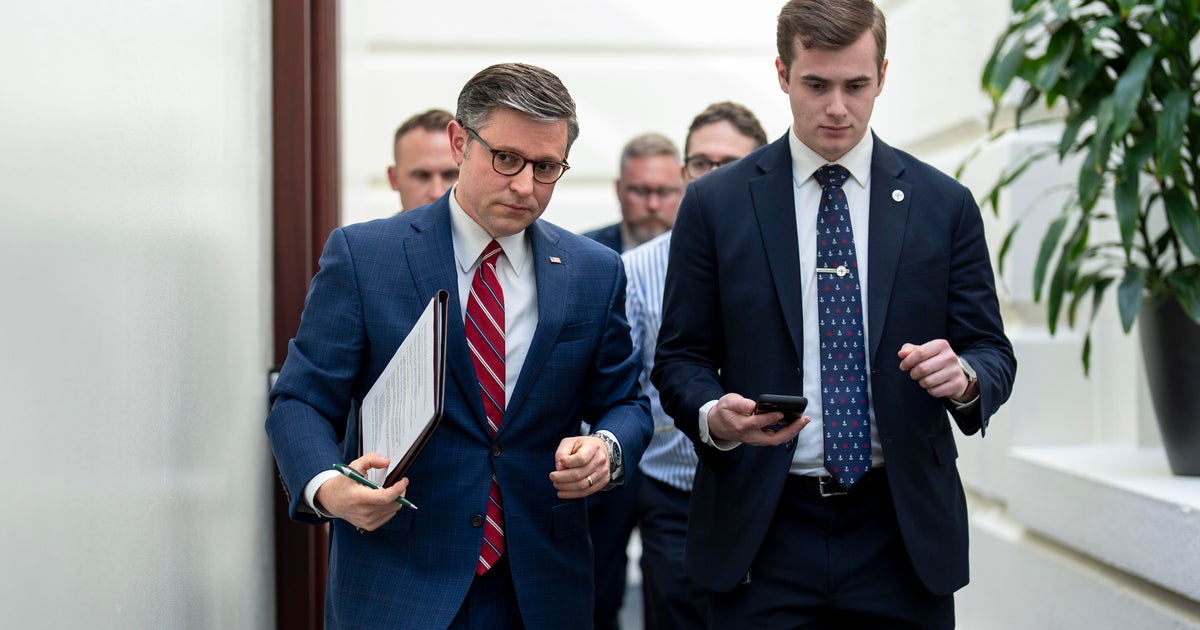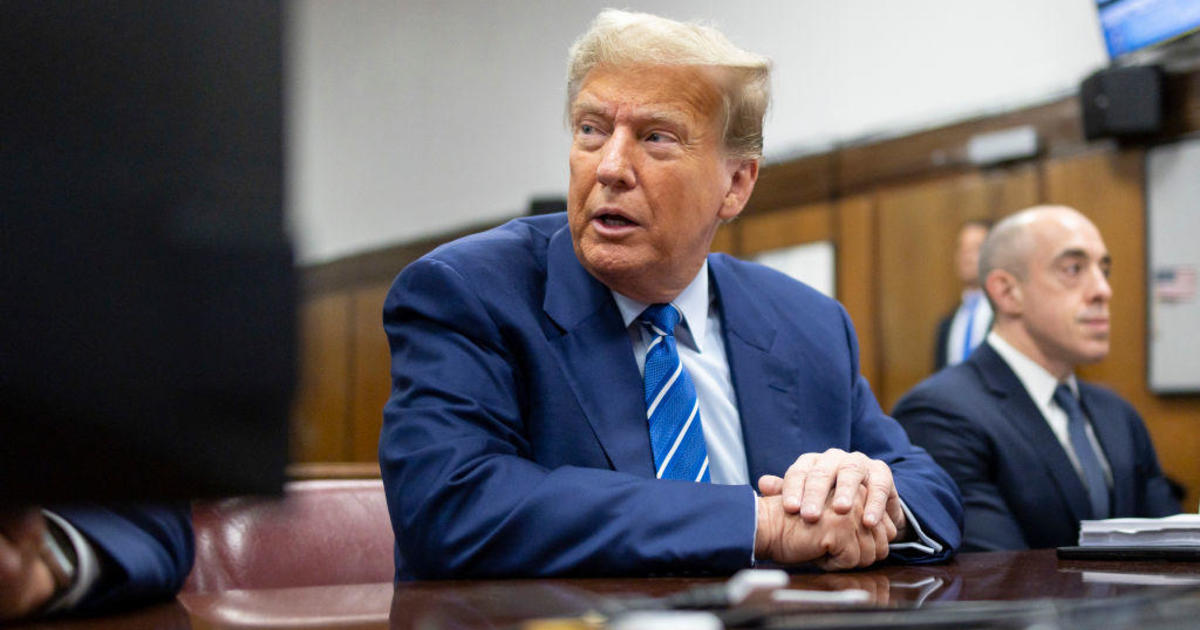Half of states are ending increased unemployment benefits as governors say businesses need workers
A growing number of Republican-led states are rejecting increased unemployment benefits meant to help Americans during the coronavirus pandemic, a move they say will help business owners who can't find staff. On Tuesday, Maryland became the 25th state to announce it will end the $300 supplemental unemployment benefits starting July 3. One week ago, Nebraska also said it will also cease participation in the other pandemic-related unemployment benefits, including those for gig workers, starting June 19; that same day, Florida said it will end the enhanced benefit June 26.
"Our health and economic recovery continues to outpace the nation, and we have reached the benchmark set by President Biden of vaccinating 70% of adults," said Maryland Governor Larry Hogan in a statement. "While these federal programs provided important temporary relief, vaccines and jobs are now in good supply. And we have a critical problem where businesses across our state are trying to hire more people, but many are facing severe worker shortages. After 12 consecutive months of job growth, we look forward to getting more Marylanders back to work."
Texas was the largest state to join the group, when Governor Greg Abbott announced in May enhanced benefits in the state would also end June 26, the same date Oklahoma also announced it would end benefits. Both New Hampshire and Indiana's governors said last month enhanced benefits in their states would end June 19. All together, at least 25 states this month have announced they would end increased benefits early.
"The Texas economy is booming and employers are hiring in communities throughout the state," said Abbott in a statement.
In Oklahoma, the governor announced the first 20,000 Oklahoman on unemployment benefits who return to the workforce will receive $1,200 using American Rescue Plan funds.
"There are 'Help Wanted' signs posted all over Indiana, and while our economy took a hit last year, it is roaring like an Indy 500 race car engine now," Governor Eric Holcomb said in a statement.
"In Arizona, we're going to use federal money to encourage people to work…instead of paying people not to work," Governor Doug Ducey said in a statement last month announcing Arizona would be offering one-time bonuses to returning workers.
But President Joe Biden has said that the enhanced federal benefits aren't why people aren't going back to work.
"The line has been because of the generous unemployment benefits, that it's a major factor in labor shortages. Americans want to work. Americans want to work." Biden said at the White House last month. "I think the people claiming Americans won't work even if they find a good and fair opportunity underestimate the American people."
Anyone collecting unemployment who is offered a "suitable job" must take that job or lose unemployment benefits, Biden said, with several exceptions that mean people do not have to choose between their safety and a paycheck.
Officials in Montana, South Carolina and Arkansas became the first states to announce in the first week of May that they would exit the federal program by the end of June. Montana Governor Greg Gianforte said the "vast expansion of federal unemployment benefits is now doing more harm than good."
They have since been joined by 22 other states. All are led by Republican governors. Only two of the 27 GOP-led states so far have not announced ending federal unemployment programs.
Vermont's work search requirements for those receiving benefits were also reinstated as in mid-May. Massachusetts will begin doing so as well starting the week of June 15.
And other states are pondering similar measures in light of the latest jobs report from the Department of Labor showing that the economy added 266,000 jobs in April, far fewer than the 1 million experts expected.
The president earlier this month noted there are still 8 million fewer jobs than when the pandemic started. He called those benefits a "lifeline." The American Rescue Plan passed in March extended $300 unemployment benefits through early September.
"We'll insist that the law is followed with respect to benefits," Biden said. "But we're not going to turn our backs on our fellow Americans."
When asked about the states opting out, White House press secretary Jen Psaki called the governors' reasoning to be "off track."
"What we've seen in the data is that the actual issues at play here are the pandemic and people needing to address things like child care," Psaki said. She also noted people being "fearful" about going back to work before they were vaccinated and that when they look at a data they have not seen the enhanced benefits as a "widespread driving factor in people not going back to work."
Speaking at the White House press briefing the day the April jobs report came out, Treasury Secretary Janet Yellen also claimed data does not support the argument that increased unemployment benefits are leading to a workforce shortage. She said when they looked at states and sectors where supplemental benefits were high, there weren't lower job finding rates as the argument would suggest, and in fact it was the "exact opposite."
Several studies have examined the connection between benefits and unemployed people returning to work. In February, a study by JPMorgan Chase Institute found little evidence that increased benefits discouraged people from returning to the job. It found after Congress boosted supplemental insurance to $600 last spring at the onset of the pandemic, many jobless workers who received the money returned to work before the supplement expired.
A separate study by the Federal Reserve Bank of Chicago looking at unemployment insurance and job searching using data from 2013 through 2019 found those receiving unemployment benefits search more intensely for work over those not receiving benefits and once benefits drop off, search efforts drop steeply.



